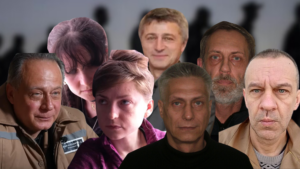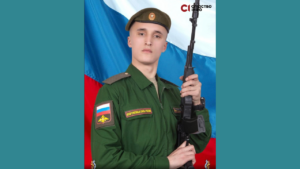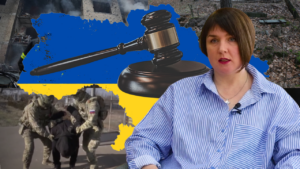60 Russian war criminals convicted in Ukraine over a year – infographic
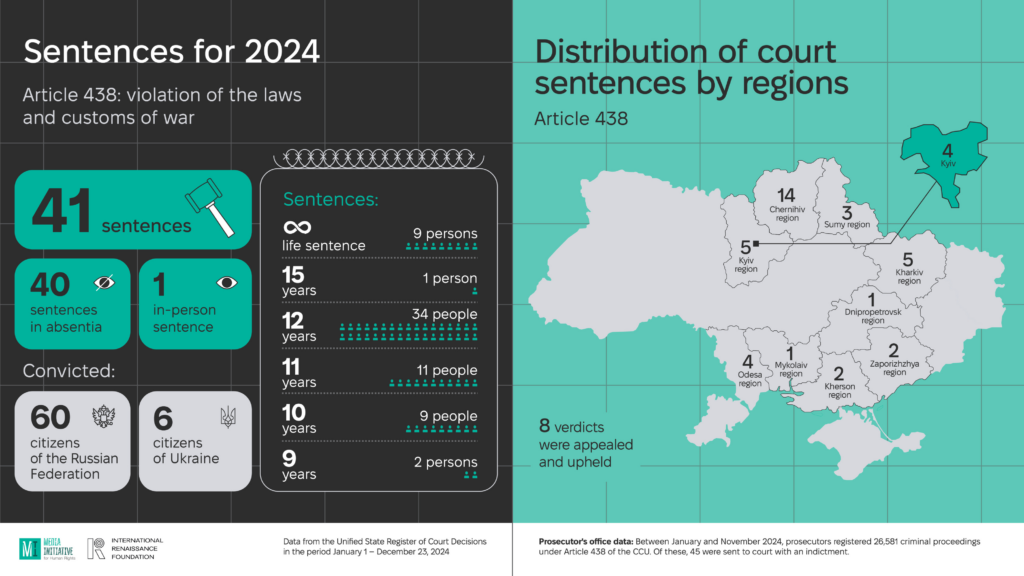
The convicts received sentences ranging from 9 years to life imprisonment.
Between January 1 and December 23, 2024, Ukrainian courts handed down 41 verdicts under Article 438 of the Criminal Code of Ukraine: violation of the laws and customs of war. Forty of these sentences were passed in absentia, meaning that the cases were considered without the defendants being present in the dock. The Media Initiative for Human Rights obtained this information after analyzing the Unified State Register of Court Decisions.
Currently, Article 438 of the Criminal Code is the main article under which war crimes cases are considered in Ukraine. It provides for criminal liability, in particular, for ill-treatment of prisoners of war or civilians, looting of national property in the occupied territories, and the use of means of warfare prohibited by international law.
In 2024, Ukraine convicted 66 people for such crimes, 60 of whom were Russian citizens and 6 were Ukrainians. Among the Ukrainians are, for example, an adviser to the so-called “head of the DPR” who abducted civilians, a judge from Crimea who decided to expel Ukrainians from the peninsula, and a resident of the Kherson region who helped Russians detain and torture people during the occupation. For what the Russian military was tried, read here, here, and here.
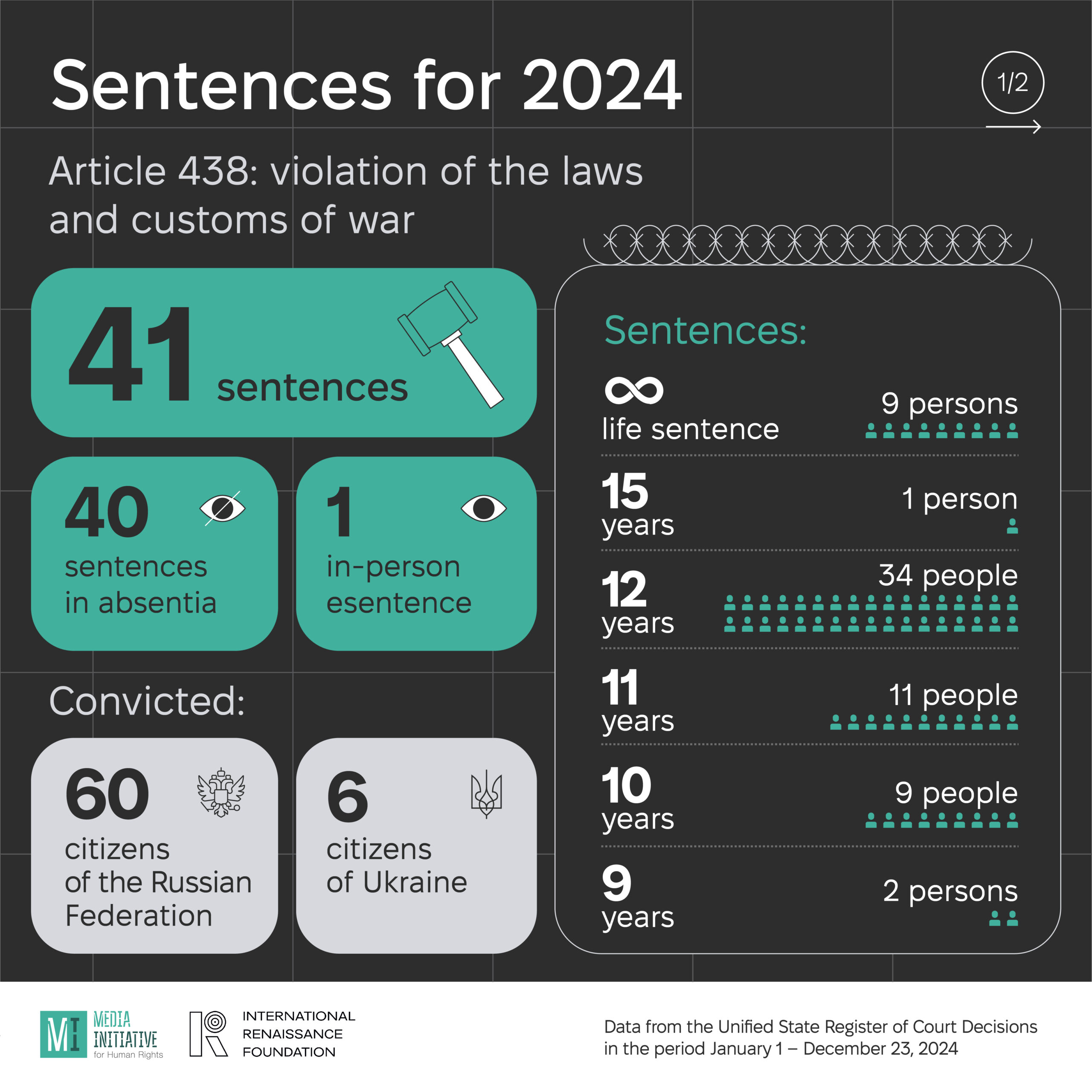
In 2024, the courts of the Chernihiv region became the record holders regarding the number of sentences under Art 438 of the CCU. There were 14 verdicts handed down there during the year. Nine verdicts were handed down by the courts of Kyiv and the Kyiv region, five by Kharkiv, four by Odesa, and three by Sumy. Two verdicts were handed down in the Zaporizhzhia and Kherson regions, and one was each in the Dnipropetrovs’k and Mykolaiv regions. Only eight of these verdicts were appealed to the courts of appeal but remained unchanged.
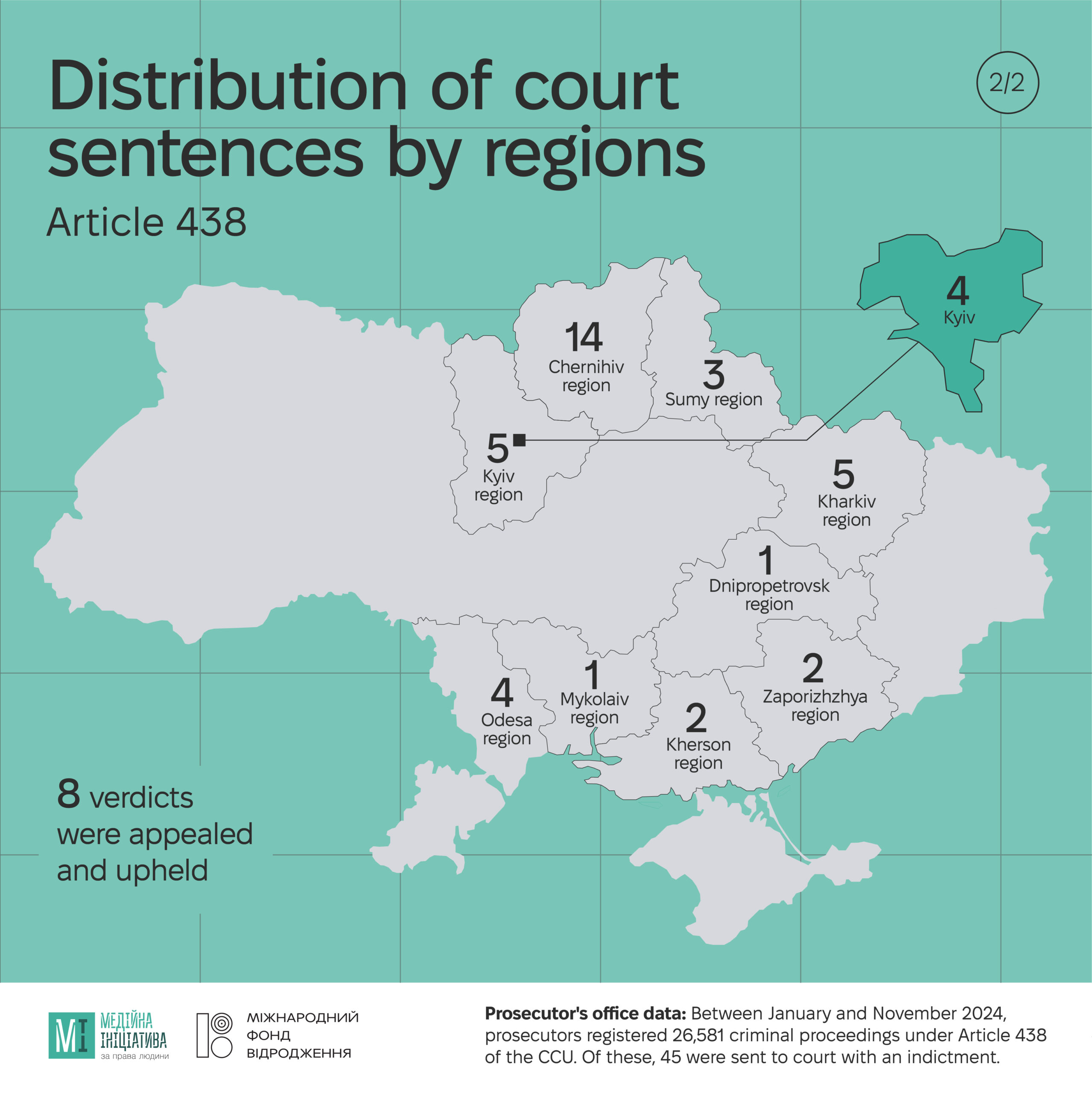
Most of the Russians accused of war crimes remain at large. However, witnesses and victims are willing to testify against them. In such cases, the court has the right to apply a special in absentia procedure for considering the case — that is, in the absence of the accused. You can learn more about this procedure and its issues on our YouTube channel.
In cases of war crimes trials in absentia, Ukraine could count on Interpol member states to detain and extradite citizens convicted of war crimes to serve their sentences. However, this is not happening. MIHR journalists explain why in their investigation.
Earlier, the MIHR described in detail what is happening in war-related court cases in the interim analysis for 2023. The analysis highlighted several problems that arise during the consideration of such cases. Read the analysis here.
This publication was compiled with the support of the International RenaissanceFoundation. It’s content is the exclusive responsibility of the authors and does not necessarily reflect the views of the International Renaissance Foundation.



